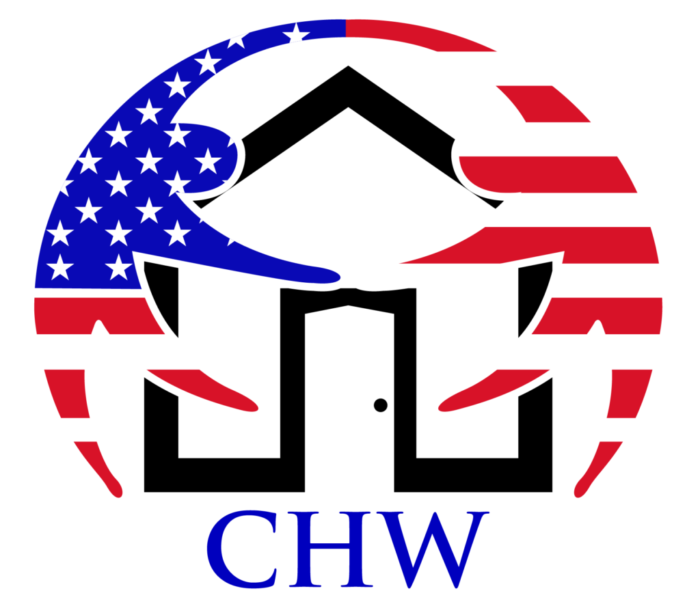How to help someone struggling with unhealed trauma
By Donna Hoffmeyer
(original post on Medium)
Something happened. He just snapped and told me to get out. I have no idea what I did, but I do know I am tired of walking on eggshells. I cannot continue to live like this.
This is a conversation I have been in on too many times with spouses, family, and friends of struggling Veterans. The reality is it could be anybody dealing with someone with unhealed trauma.
This time of year, the struggle becomes ever more difficult. So, what better time to talk about helping those struggling than right during the holiday season?
Before I go any further, let me preface this blog article by saying I am not a therapist of any kind. What I am sharing with you is what I have seen over many years as a nurse and clinical case manager dealing with scores of Veterans with trauma and their suffering family members; the friends/family I have supported through their healing journey; and a little bit of my trauma I have survived and am healing.
In defense of the person dealing with the trauma, a few things are going on. First, their system is in overdrive, putting them in a constant state of alert. Their irritability, frustration, and anger are often due to the inability of the brain to get out of this state. Second, there is often a period where they are not aware they are having issues. I have had a few Veterans tell me it was their wife/husband/partner/child that first made them aware there was an issue.
Why is there no self-awareness? How do they not see their excessive drinking, irritation at the little thing, and anger outburst? How do they not recognize their aggressive behavior? How do they realize going to bed with a weapon tucked under their pillow is not normal practice?
IMHO, because it is not an overnight change. If you have dealt with mental/emotional trauma, the compensation is insidious. It pervades the person and slowly transforms them in a way they, and even their family/friends, cannot perceive…at least initially.
However, over time it is noticed, and there is a slow awakening. Usually, family/friends notice it first, and through reactions and comments, the person begins to have some level of awareness. But…, not the level that motivates them to want to change. No, quite the opposite…avoidance.
It is often very difficult and overwhelming to acknowledge what they are truly seeing in the mirror. And where there is avoidance, there is coping. Drugs, alcohol, sex, gambling, or a combination of a few of them. They need something to distract them from the wounds oozing inside.
Their loved ones are trying their best to give them support. There is sometimes a false belief their love alone will help them conquer this beast. If they can just show them the good things in life and love them, they will be able to turn it around.
Eventually, they realize love is not enough.
Then it becomes a compensating game. The family/friends try to keep track of, and avoid, the behaviors that trigger their loved one. They start to walk on eggshells, trying to not cause an outburst. Over time, they may engage as little as possible to mitigate the chance of an explosion.
But the explosion eventually happens…and there are always casualties. After the dust settles, remorse and guilt come in and do their best to patch up the holes in the wall; vainly attempting to make the picture perfect again.
And the cycle begins again…
It can be an extremely difficult world to exist in. As much as the support person wants to be there for them, it sometimes takes such an extreme toll on their well-being, leaving becomes their only option.
What do you do when your partner/family/friend is struggling but is in denial?
Set boundaries
There is no doubt the person struggling needs support and love. At the same time, there still needs to be boundaries. People with unhealed trauma can unintentionally be energy vampires. Give the support, but do not let them zap all your energy from you.
Build a support network for yourself
It is important to have people around you that understand what you are going through. Find a spouse/partner/family support group. Work on taking time for self-care. A few to get you started:
- PTSDWifey
- Spouse and Family Members’ PTSD Support Group (Facebook)
- PTSD Family/Spouses Support Group (Facebook)
- Spouses Living with Military PTSD/TBI (Facebook)
- VA Caregiver Support Program
Build a support network around the loved one
Engage them in healthy activities — playing sports, working out, trying out a new restaurant, grabbing a coffee. Invite them to social gatherings (preferably ones that do not promote risky behavior (alcohol, drugs, etc…).
Keep inviting them to events. They may not show, but continuing to remember them does give them a reminder they are valued and loved.
Have resources readily available
The ideal outcome is for the person to raise their hand and ask for help. Having a list of resource options available to them immediately will mitigate the chance of them changing their minds. Figure out which ones are covered by their insurance, which ones are free, which ones have availability, etc… Here are a few places to start:
- Find a therapist
- Retreats/Camps
- More Retreats/Camps (maybe a few repeats here)
I want to go a little further into resources. I have lived both in tiny towns and huge cities, and there is a vast difference in available resources. If you have a loved one that is struggling and you have limited resources, there are a few things that may help in an acute situation:
- Meet and get to know your local law enforcement…this could be the town police, county sheriff, and/or state trooper. It is better they have general knowledge of a person struggling before there is a major explosion, rather than when an explosion is happening.
- Suicide and Crisis Line (dial 988): 24/7 confidential crisis support.
- Veteran Crisis Line (dial 988, press 1): Family and friends that are concerned can also call this line. If the Veteran has a therapist, a message will be sent to them letting them know there was a call-in regarding their patient.
One last (and uber important)thing… knowing what not to say can help avoid inadvertently triggering your loved one. So things NOT to do or say.
- Do not discuss the trauma event. (What happened that night?)
- Do not compare their trauma with yours or anyone else. (Frank had something similar happen, but he’s doing fine now.)
- Do not tell them to just let it go and move on. (Hey, it’s been 10 years, maybe you should just let it go.)
- Do not quantify their trauma. (It was only one explosion and you didn’t even get that injured. How bad can it be?)
- Do not tell them to stop whining or being the victim. (If you could just stop complaining and look at the bright side.)
Instead, tell them:
- None of this is their fault.
- I am here to support you.
- I am here if you need an ear to talk.
- Healing is difficult and takes time, but not impossible with help.
I do not want anyone to take this as a hopeless situation. Many people have done the hard work and gone on to live fulfilling, meaningful, and productive lives.
However, what needs to be understood is that no one can “fix” a person with unhealed trauma. Only they can pull themselves out of the mud. As much as I wish, love alone is often not enough. Giving our love, and support, and providing ropes (resources), gives them the best chance to pull themselves out.


